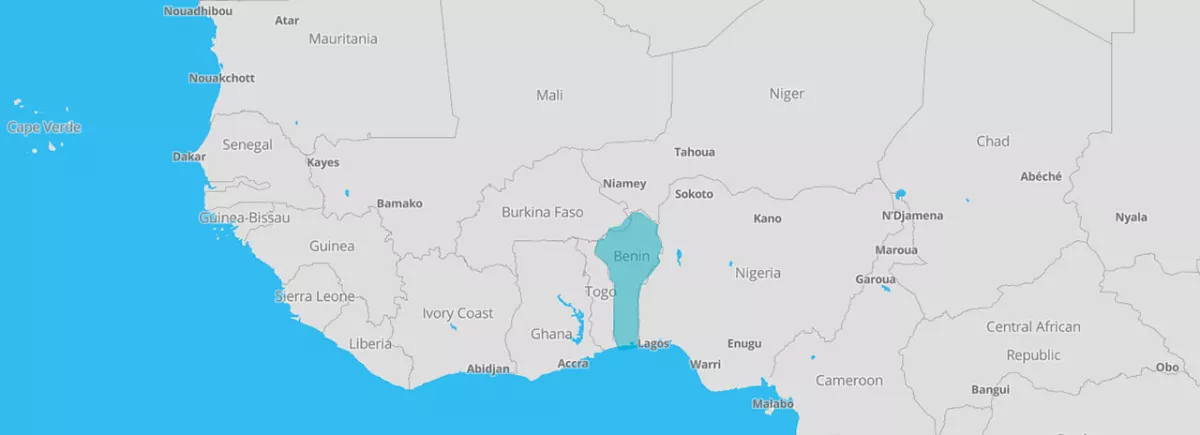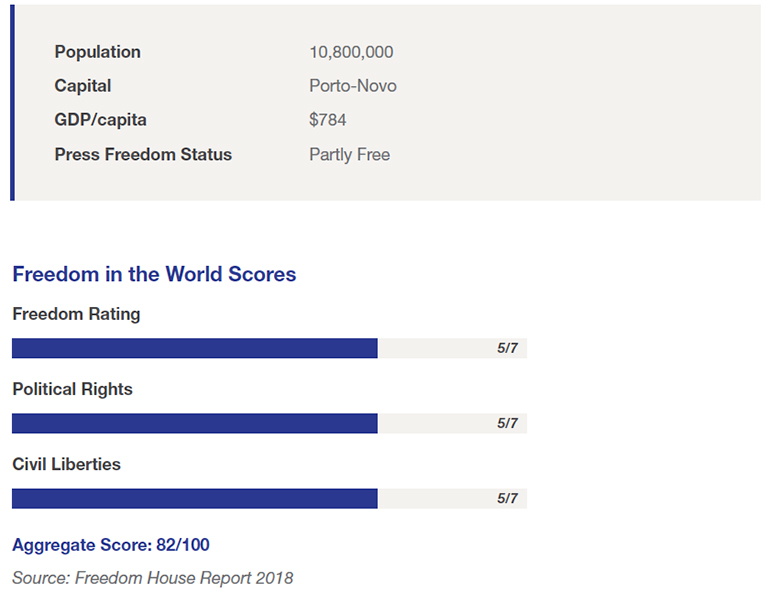
Civic tech in Africa: Benin
This sheet proposes a synthetic presentation of civic tech in Benin.
Connectivity
In 2016, the percentage of the population of Benin with an Internet connection was 11.99%, compared to 3.50% in 2011 (
UIT statistics). The government's recent intention to impose a tax of 5 CFA francs (€0.007) per megabyte for access to over the top (OTT) services, thus making access to Facebook or WhatsApp more expensive, triggered a heated debate within the country, leading the government to abandon its plan.
National policy
Benin introduced an information and communications code in 2015. Articles 6, 7 and 8 indicate a digital policy that is moving in the direction of freedom of expression.
This legal instrument was supplemented by the digital code adopted in November 2017.
Freedom of expression
Benin obtained a score of 82/100 in the 2018 Freedom House report on freedoms. Freedom of expression in Benin is not afflicted by any major limitations, and use of social media for policy improvement is permitted, as the actions of civic tech players have testified for two years.
History and development of civic tech in Benin
In Benin, civic tech projects are at a fledgling stage, with “fairly young" people involved, as was seen during the last presidential elections in 2016, won by
Patrice Talon, and the launch of the “Talonmeter" which checks that the new president respects his campaign promises.
The development of civic tech initiatives in Benin has been gradual, with players forging relationships and partnerships with public authorities. The legislative framework is also quite favourable to the development of projects, and to their sponsorship by financial backers.
Strong emergence of Benin in the civic tech arena, but consolidation is needed
Over recent years, Benin has made a remarkable entry into the arena of innovation in new technologies in West Africa. After watching other countries in its region launch projects since 2010, to encourage the growth of the digital sector, Benin embarked on this route in 2015, with the appearance of coworking spaces, the launch of hackathons and various training programmes, and the setting up of associations such as the bloggers' association.
Most of the civic tech initiatives were set up to monitor the 2016 presidential elections. There is a fairly large number of initiatives, and they have benefited from funding by multiple international backers. Since the enthusiasm of the post-electoral period has receded, there has emerged a need to consolidate and reinforce a sector that has not yet had the time to structure itself.



